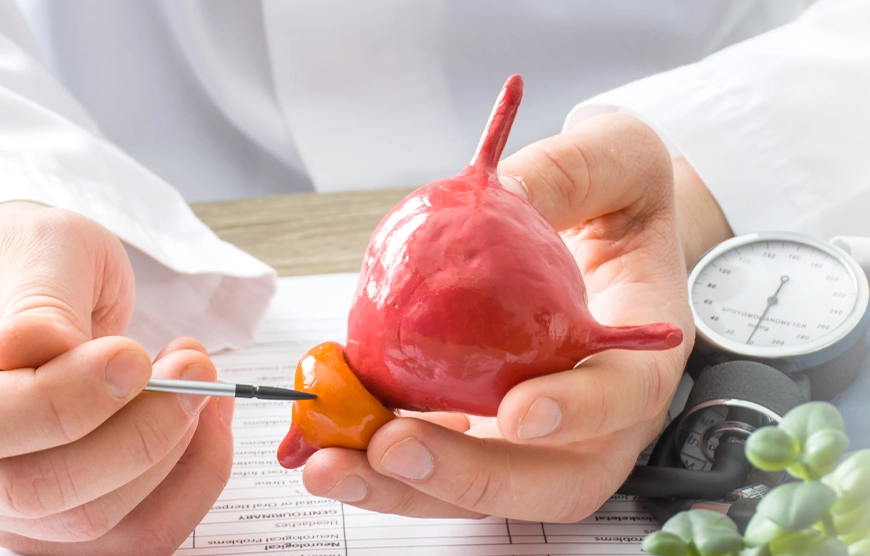
What is prostate cancer?
Cancer is a condition in which the growth of normal cells becomes uncontrolled for reasons not entirely understood. These cells continue to divide, creating a tumour which at first grows locally within the prostate, then may spread via the lymphatics or blood stream to more distant parts of the body.
Prostate cancer most commonly affects the outer part of the gland, and is often slow growing over many years. It does not usually cause any symptoms until it has grown to a large size or spreads outside the prostate.
What is the prostate?
The prostate gland is a small, solid gland roughly the size of a walnut, located behind the pubic bone. It is situated beneath the bladder, enclosing the first part of the urethra (water passage). Approximately 0.5ml of each ejaculate is fluid made by the prostate, containing a number of substances that nourish the sperm and are necessary for fertility.
Two small pouches, the seminal vesicles, sit directly behind the prostate, and provide a further 2ml of ejaculatory fluid via small tubes that run through the prostate into the urethra, the ejaculatory ducts.
The prostate gland produces an alkaline fluid, also known as prostatic fluid, which offers protection and lubrication for the sperm. The fluid, which comes out of the ejaculatory ducts, helps neutralise the acidic environment present in the vagina. The prostate is vulnerable to many health problems that typically occur at varying stages of life. One of them is prostate cancer.

According to an annual Singapore Cancer Registry Report published by the National Registry of Diseases Office, prostate cancer is the
3rd most common cancer in Singaporean men. Globally, the World Cancer Research Fund says that prostate cancer is the second most common cancer in male individuals.
Prostate cancer is the
3rd most common cancer of Singaporean men, and sixth most common cause of from cancer in men.







